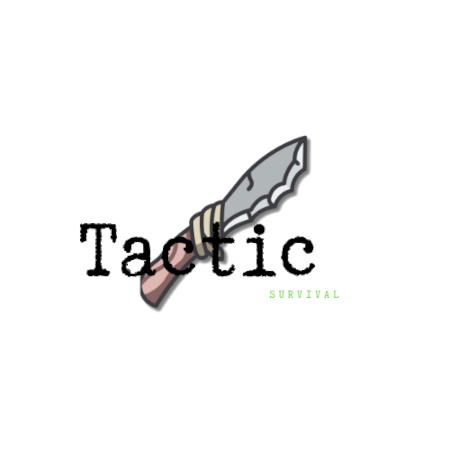Did you know self-reliance training helps people become more independent and self-sufficient? The Independent Living Skills Program at Independence, Inc. supports those with disabilities. It teaches skills like managing money, running a home, getting ready for work, and organizing.
People learn to handle their personal care and household through this program. It aims to make sure everyone can live a full life. This is both at home and in the wider community.
Key Takeaways:
- Self-reliance training is key for more independence and self-sufficiency.
- The Independent Living Skills Program provides deep training in key areas.
- It teaches things like managing money to help people be more independent.
- Individuals with disabilities gain a lot from learning how to manage personal care services.
- The program wants to enable everyone to enjoy a full life at home and in the community.
The Meaning of Self-Reliance
Self-reliance lets people be in control of their lives and solve problems confidently. It’s about being independent and ready to face any challenge. This can lead to feeling sure of yourself and able to bounce back when things get tough.
But self-reliance isn’t just about doing things on your own. It’s also about staying strong emotionally and mentally. Believing in yourself and being creative in finding answers are key. Those who are self-reliant can trust their gut and make decisions, even when things are unclear.
“The greatest thing in the world is to know how to belong to oneself.” – Michel de Montaigne
Problem-solving is a big part of self-reliance. Those who are self-reliant can think critically and find the best way to get through tough times. They see problems as chances to grow and get better.
Being self-reliant doesn’t mean you can’t work with others or ask for help. It means knowing when to reach out. Self-reliant people value the help and advice of others to make better choices and solve problems.
Learning self-reliance makes you more confident, skilled, and flexible. It helps you set and achieve important goals, even when things are hard. Self-reliance is crucial for a happy, successful life.
The next section will look at why it’s good for both kids and grown-ups to be self-reliant.
Benefits of Self-Reliance
Learning to rely on yourself brings many rewards for both kids and adults. It builds freedom and confidence, teaches you to tackle problems, and keeps you thinking about how to grow. People who can depend on themselves often step up, set clear targets, and keep going when things get tough.
Being self-reliant means you can make your own choices and act on them without always needing input or approval from others. This power lets you steer your own life with more freedom and independence.
It also sharpens your ability to solve problems. If something tough comes your way, you’re more likely to analyze it, come up with solutions, and act. You have the guts to face problems and the creativity to get around them.
Self-reliance is closely linked to a belief that you can always improve. Those who trust in their own learning love to challenge themselves. They see tough times as chances to get better and learn, keeping a good attitude through it all.
“Self-reliance is the key to unlocking our full potential. It empowers us to take charge of our lives, solve problems, and embrace new opportunities.” – Angela Davis
This skill also helps you grow as a person. It makes you strong against tough times and fuels you to keep trying even when things don’t go your way. By using your own abilities, you’re better equipped to face challenges and meet your goals.
In the end, becoming self-reliant is crucial for anyone who wants to grow, succeed, and feel fulfilled. It helps you enjoy your independence, improve how you solve problems, and keep aiming higher. Growing up, these lessons can turn you into someone strong, smart, and ready to take on the world.
Benefits of Self-Reliance
| Benefits | Description |
|---|---|
| Autonomy | Self-reliant individuals experience increased autonomy, allowing them to make decisions and take actions based on their own judgment. |
| Problem-Solving Skills | Self-reliance cultivates strong problem-solving skills, enabling individuals to analyze situations, identify solutions, and take appropriate action. |
| Growth Mindset | Self-reliant individuals embrace a growth mindset, viewing failures and setbacks as opportunities for personal development. |
| Resilience | Self-reliance fosters resilience, empowering individuals to persevere in the face of challenges and achieve their goals. |
Nurturing Self-Reliance and Independence
To help kids become independent, focus on their decision-making and problem-solving. It’s important to let them make age-appropriate choices and learn from the results. This helps them get better at making decisions and taking responsibility for them. Teaching how to solve problems, like breaking them into smaller pieces, can boost their skills in this area.
It’s also key to praise kids for trying hard, not just for their results. This way, they’ll learn to keep going even when things are tough. And don’t forget, everyone has different skills, so it’s important to set goals that are right for each child. This helps them believe in themselves and move forward at their own speed.
Kids should feel the good and bad results of their choices. This way, they learn to own up to what they decide and grow more responsible and independent. Letting them face the outcomes, whether they’re good or not so good, is a big part of learning to be in charge of their lives.
Creating a supportive atmosphere is crucial for building independence. Kids need a safe place to share their thoughts and feelings. In this kind of environment, they are more likely to tackle problems and life skills with confidence. Talking openly and supporting each other helps them see their strengths and try new things without fear.
Practical Strategies for Nurturing Self-Reliance
- Encourage decision-making: Involve kids in making choices. This builds their decision-making skills and shows them the value of their choices.
- Teach problem-solving strategies: Help kids learn how to break big problems into small steps. Encourage them to think critically and find their own solutions.
- Teach life skills: Show children basic skills such as cooking, cleaning, and managing money. This helps them become more independent and confident in everyday tasks.
- Promote perseverance and resilience: Tell kids it’s important to keep trying, even when things are hard, and to bounce back from tough times. These are vital for developing independence.
By using these tips and creating a supportive space, parents and caregivers can help children become more self-reliant. Giving children power over their decisions, teaching them to solve problems, helping with life skills, and having a growth mindset lays a great foundation for success in adulthood.
| Benefits of Nurturing Self-Reliance and Independence | Strategies to Foster Self-Reliance and Independence |
|---|---|
| Promotes problem-solving skills | Encourage decision-making |
| Fosters a growth mindset | Teach problem-solving strategies |
| Develops autonomy and self-confidence | Teach life skills |
| Enhances perseverance and resilience | Promote perseverance and resilience |
Strategies for Building Self-Reliance
Building self-reliance means helping people rely on themselves more. This requires setting clear and achievable goals. It also means giving people the tools and help they need. With the right strategies, anyone can become more independent and confident.
Realistic expectations are key. Everyone is different, with their unique skills and limits. Making sure goals are challenging but doable can push people in the right direction. It helps them grow without feeling overwhelmed.
Having support and guidance is crucial. This can come from family, friends, or mentors. They offer the needed advice, feedback, and cheers. With support, anyone can feel more self-assured and ready to tackle challenges on their own.
“Building self-reliance requires setting realistic expectations, providing support and guidance, allowing for natural consequences, and creating a supportive environment.”
Letting natural consequences happen is a powerful teacher. It shows people the results of their choices. This way, they learn to think ahead and deal with the outcomes of their decisions. This teaches important skills and life lessons.
Creating a caring environment is also key. A place where people feel safe and loved helps them gain confidence. It supports them emotionally and encourages them to grow. With this support, individuals can become more self-reliant.
Conclusion
It’s vital to help people be self-reliant and independent for their growth and success. This is done by teaching them to make choices, solve problems, help themselves, and think in positive ways. With these skills, people can go through life feeling sure of themselves and ready for anything.
To build self-reliance, we need to set clear goals and be there to help, not do everything for them. It’s key to let them face the results of their choices. This helps them feel encouraged to do things on their own. It’s important to create a space that supports trying new things and building confidence.
When people get more self-reliant, they get better at choosing and solving problems. This helps them face challenges, reach their personal dreams, and run their own lives. In the end, becoming self-reliant brings growth, a feeling of pride, and more chances for success.


